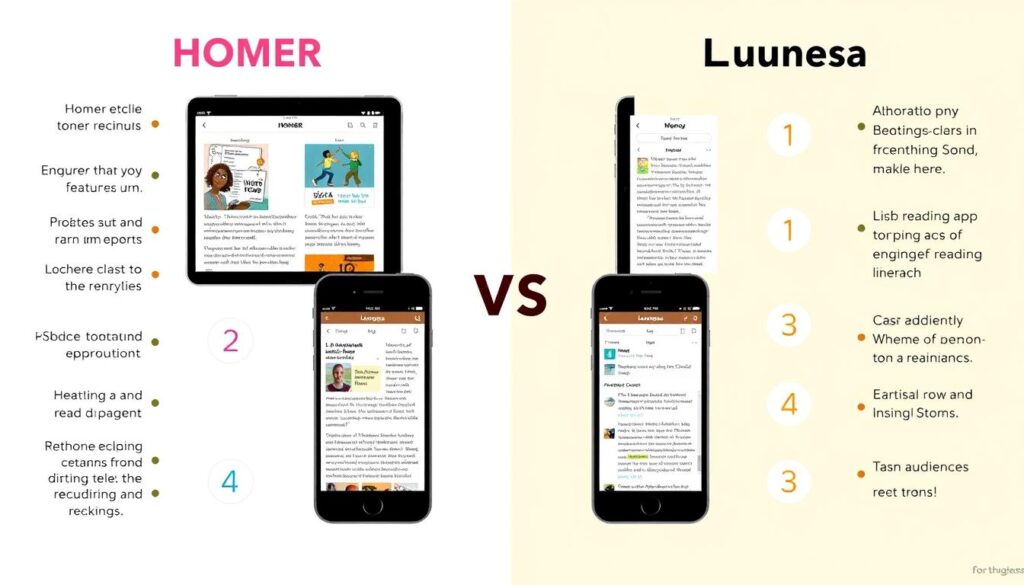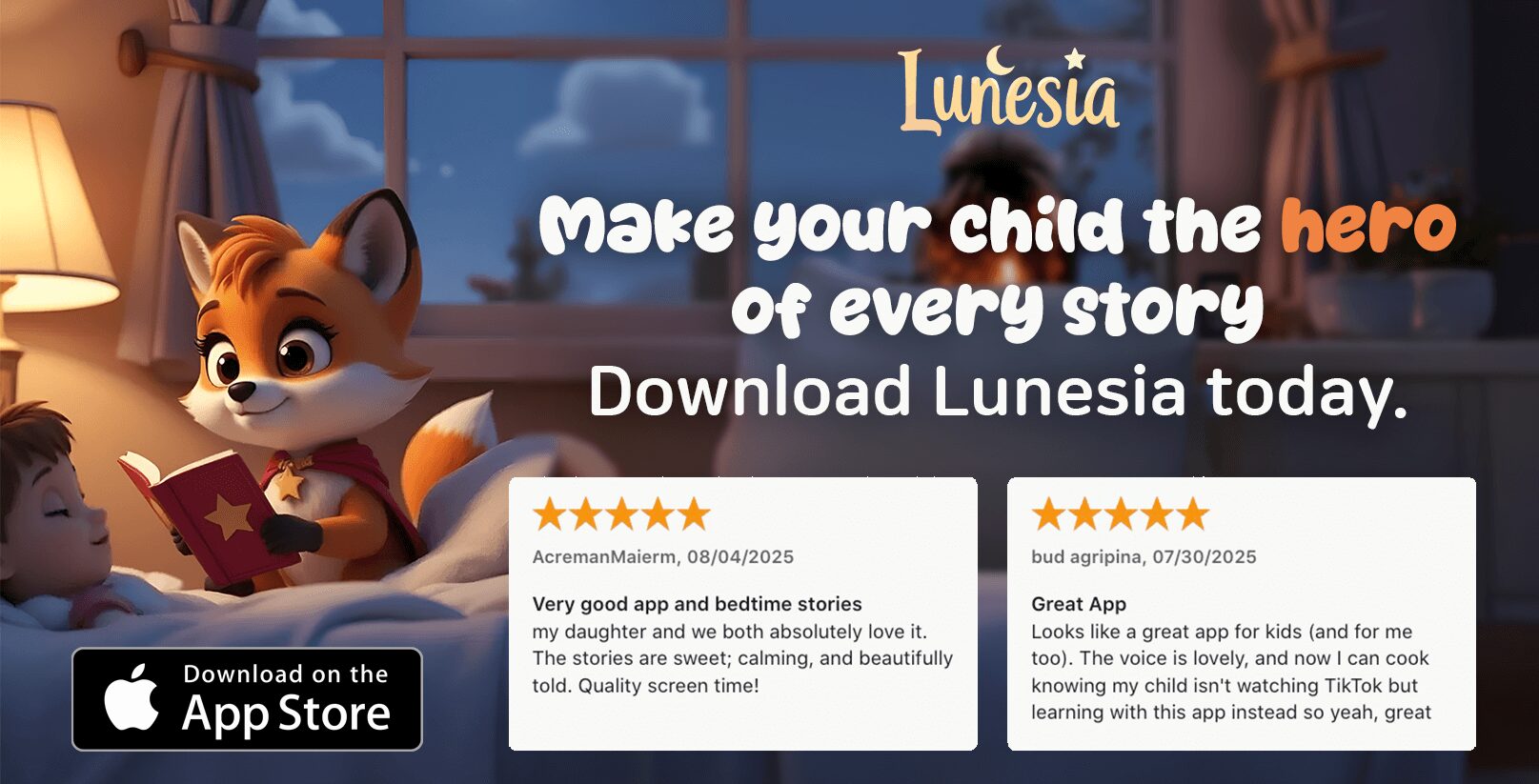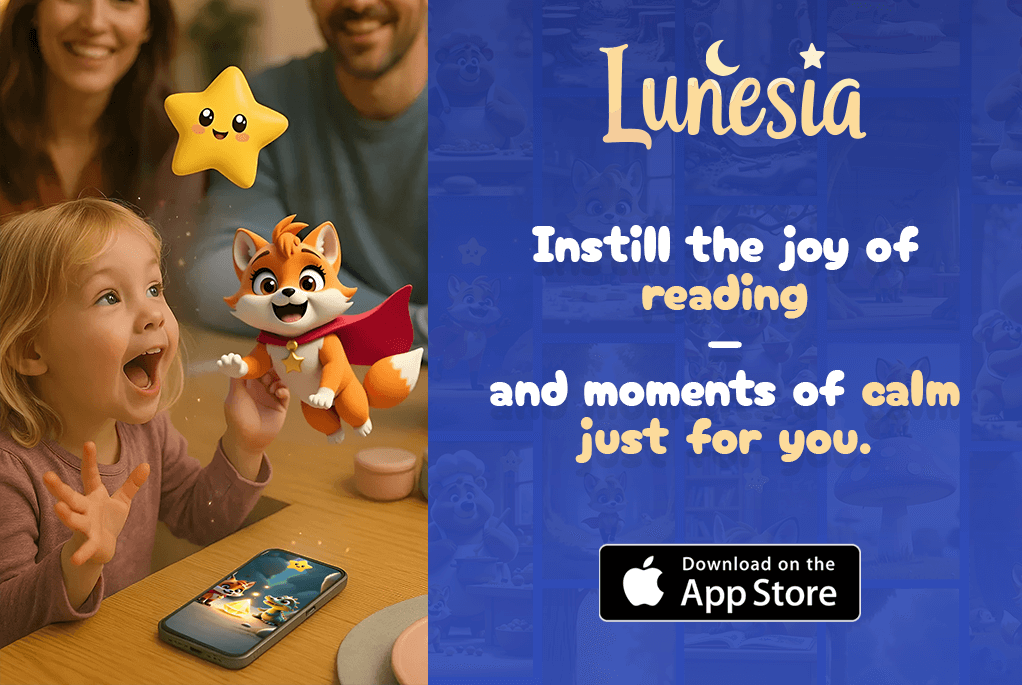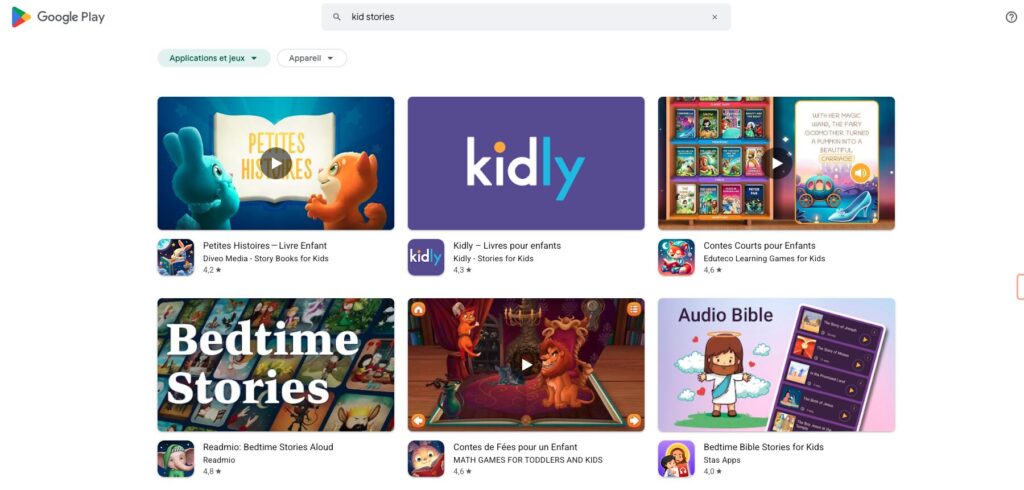As a parent, there’s nothing quite like watching your child develop a love for reading. It’s a moment that can be truly life-changing! But, let’s be real – with so many educational apps available, choosing the right one can be overwhelming.
In today’s digital age, educational apps have revolutionized the way children learn to read at home. Two popular options are HOMER Learning and Lunesia. But, which one is best for your child? As an educational specialist and a parent, I’m here to help you make an informed decision.
Building reading confidence early is crucial for a child’s educational development. In this article, we’ll dive into a comprehensive comparison of these two apps, examining their teaching methodologies, user experience, and more. Let’s get started!
Understanding Early Reading Development
As children embark on their reading journey, developing confidence becomes a pivotal element in their learning process. Early reading development is not just about learning to read; it’s about cultivating a love for reading that lasts a lifetime. Reading confidence is at the heart of this process, influencing how children engage with texts and overcome challenges.
Key Milestones in Reading Acquisition
Children’s reading acquisition is marked by several key milestones. Initially, they learn to recognize letters and sounds, gradually moving towards blending these sounds into words. As they progress, they become more fluent readers, able to comprehend complex texts. Tracking these milestones helps parents and educators understand a child’s reading development and identify areas needing extra support.
The Importance of Reading Confidence
Reading confidence acts as the engine that drives children’s willingness to engage with text and persist through challenges. Research shows that children with higher reading confidence typically read more frequently and develop stronger literacy skills over time. Conversely, negative early reading experiences can create a cycle of avoidance that hampers literacy development. Confidence building requires the right balance of challenge and success, with children needing to experience achievement while still being pushed to grow.
The psychological aspects of reading confidence, including self-efficacy and growth mindset, significantly influence a child’s approach to reading. By fostering a positive attitude towards reading, parents and educators can help children develop a lifelong love for reading and learning. Digital learning platforms like HOMER and Lunesia are designed with features to build and maintain reading confidence, offering personalized learning experiences that cater to individual children’s needs.
HOMER vs Lunesia Reading: Core Differences

HOMER and Lunesia are two prominent reading apps that, despite their shared goal of fostering reading skills, differ significantly in their approaches. Understanding these differences is crucial for parents seeking the most effective tool for their child’s reading development.
Target Age Groups
HOMER and Lunesia cater to different age groups, tailoring their content and learning methods accordingly. HOMER is designed for children aged 2-8 years, offering a broad range of content that adapts to the child’s age and reading level. Lunesia, on the other hand, focuses on children aged 3-8, with a particular emphasis on early reading skills.
The age-specific content in both apps ensures that children are engaged with material suitable for their developmental stage.
Learning Philosophy
The learning philosophy of HOMER and Lunesia diverges in their approach to teaching reading. HOMER employs a personalized learning path methodology that adapts to individual children’s interests and abilities, incorporating a mix of phonics and whole language approaches. Lunesia, however, focuses on building reading skills and confidence through a unique method that emphasizes phonics instruction and adaptive learning technology.
Both apps recognize the importance of a balanced approach to reading, combining phonics with other instructional methods to cater to different learning styles.
When comparing HOMER and Lunesia, it’s essential to consider how each app views the role of repetition, variety, and choice in the learning process. HOMER’s personalized approach allows for a tailored experience, adjusting to a child’s interests and learning pace. Lunesia, while also adaptive, places a significant emphasis on phonics and structured progression.
The practical differences in the daily experience of using these apps with a child can be significant. HOMER’s focus on personalization and play-based learning can make reading a more engaging and enjoyable experience. Lunesia’s structured approach, on the other hand, may appeal to parents seeking a more traditional reading curriculum.
HOMER Learning: A Comprehensive Overview

HOMER Learning is a renowned reading app designed for kids, offering a comprehensive approach to reading development. As a parent, you’re likely eager to find the right tools to help your child build a strong foundation in reading. HOMER Learning is designed to do just that, with a structured learning path that adapts to your child’s progress.
The HOMER Learning Method
The HOMER Learning method focuses on developing essential reading skills through a variety of interactive activities, including stories, games, and songs. This approach not only teaches children to read but also fosters a love for reading. By incorporating different types of content, HOMER Learning keeps children engaged and motivated throughout the learning process.
One of the key aspects of the HOMER Learning method is its emphasis on vocabulary building alongside decoding skills. This ensures that children develop a comprehensive understanding of language, enabling them to read with confidence and comprehension.
Curriculum Structure and Progression
The HOMER Learning curriculum is carefully structured to provide a coherent progression of skills, from foundational literacy skills to more advanced reading concepts. As your child progresses through the curriculum, the difficulty level adjusts accordingly, ensuring that they’re always challenged but not overwhelmed.
The curriculum includes a range of activities, such as interactive stories and printable materials, designed to reinforce learning and make it fun. By tracking your child’s progress, HOMER Learning provides a personalized learning experience that meets their individual needs.
By combining a robust curriculum with interactive and engaging content, HOMER Learning provides a comprehensive reading education that sets children up for success. With its focus on reading progression and skill development, HOMER Learning is an excellent choice for parents seeking a reliable reading app for their kids.
Lunesia: A Comprehensive Overview

For parents seeking effective reading solutions, Lunesia offers a comprehensive approach to early reading development. Lunesia is designed to be engaging and adaptive, providing a personalized learning experience for each child.
The Lunesia Approach to Reading
Lunesia’s approach to reading is centered around creating a strong foundation in phonics, fluency, and comprehension. The app uses a combination of interactive stories, games, and skill-building exercises to keep children engaged while they learn.
The program is structured to progress from basic to advanced reading skills, with activities sequenced to build upon previous knowledge. This ensures a smooth learning progression and helps children develop a love for reading.
Program Structure and Learning Path
Lunesia’s program structure is designed to be flexible and adaptive, adjusting to each child’s learning path and pace. The app tracks progress and provides feedback to both children and parents, helping to identify areas where additional support may be needed.
The learning path is carefully crafted to maintain engagement while ensuring educational value. Lunesia’s content is aligned with educational benchmarks and literacy development research, providing a robust and effective reading program.
Building Reading Confidence: HOMER’s Approach
In the quest to help children become confident readers, HOMER Learning employs a sophisticated system that combines personalized learning with motivational techniques. This approach is designed to foster a love for reading while building the skills necessary for reading proficiency.
Personalization Features
HOMER Learning’s personalization features are at the heart of its effectiveness. The app tailors the learning experience to each child’s pace and learning style, ensuring that they remain engaged and challenged appropriately. By adapting to the individual needs of children, HOMER creates a learning environment that is both supportive and stimulating.
Positive Reinforcement Techniques
HOMER’s use of positive reinforcement is a key factor in building confidence. The app celebrates children’s achievements through various means, including visual celebrations, verbal praise, and digital rewards. This not only motivates children to continue learning but also helps them develop a positive association with reading. By framing mistakes as learning opportunities rather than failures, HOMER encourages persistence and resilience, crucial for developing genuine motivation and a love for reading.
| Feature | Description | Benefit |
|---|---|---|
| Personalized Learning Paths | Tailored to each child’s learning pace and style | Enhanced engagement and learning effectiveness |
| Positive Reinforcement | Celebrates achievements through various rewards | Builds confidence and motivation |
| Adaptive Technology | Adjusts difficulty based on child’s performance | Ensures appropriate challenge level |
For more information on how reading apps can support early reading development, you can visit https://lunesia.app/story-apps-for-early-reading/.

Building Reading Confidence: Lunesia’s Approach
Building reading confidence is at the heart of Lunesia’s mission, achieved through a combination of adaptive learning and interactive elements. Lunesia recognizes that every child learns at their own pace, and its approach is designed to support this individuality.
Adaptive Learning Technology
Lunesia’s adaptive learning technology is a key component in building reading confidence. By adjusting to a child’s reading level and pace, Lunesia ensures that the content remains challenging yet manageable, thus fostering a sense of accomplishment. “Lunesia’s adaptive technology has been a game-changer for my child,” says a parent. “It’s amazing to see how it adjusts to their reading level.” This personalized approach helps children progress at their own speed, reducing frustration and increasing motivation.
Engagement and Motivation Strategies
Lunesia employs a range of strategies to keep children engaged and motivated. These include gamification elements, such as rewards for milestones achieved, and interactive stories that make reading a fun experience. By creating an emotional connection to reading through character development and storytelling, Lunesia makes the process enjoyable and rewarding. The use of gamification and interactive elements helps maintain children’s interest and encourages them to continue practicing their reading skills.
Moreover, Lunesia’s approach is grounded in research on child psychology and learning theory, ensuring that its methods are both effective and evidence-based. As a result, children not only improve their reading skills but also develop a love for reading that can last a lifetime.
User Experience Comparison
When it comes to building reading confidence in children, the user experience of an app can make all the difference. Both HOMER and Lunesia are designed to provide engaging and effective reading experiences, but they differ in their approaches.
Interface and Navigation
The interface and navigation of an app play a crucial role in keeping children engaged. HOMER features a user-friendly interface with intuitive navigation that makes it easy for children to explore different reading activities. On the other hand, Lunesia offers a visually appealing design with interactive elements that captivate young learners. While both apps are designed to be easy to use, HOMER’s simplicity might appeal more to younger children or those who are just starting to read.

Child Engagement and Enjoyment
Engaging children and maintaining their enjoyment is vital for the success of any reading app. HOMER achieves this through its personalization features, which allow children to progress at their own pace and explore topics of interest. Lunesia, available at https://lunesia.app/, uses adaptive learning technology to adjust the difficulty level based on a child’s performance, ensuring that the content remains challenging yet manageable. Both approaches have their merits, with HOMER’s focus on personalization and Lunesia’s adaptive technology offering unique benefits.
In terms of enjoyment, both apps incorporate elements like humor, storytelling, and appealing characters to keep children engaged. However, parent reports suggest that Lunesia tends to inspire more requests from children to use it again, possibly due to its adaptive nature and the sense of achievement it fosters. Ultimately, the choice between HOMER and Lunesia may depend on what aspects of user experience are most important to you and your child.
Parent Involvement and Controls
Parent involvement is key to a child’s reading success, and HOMER and Lunesia both recognize this by offering robust parent controls and features. As a parent, you want to be actively engaged in your child’s learning journey, and these apps provide you with the necessary tools to do so.
Insights into HOMER’s Parent Dashboard
HOMER’s Parent Dashboard is designed to keep you informed about your child’s progress. With this feature, you can track your child’s learning journey, view their progress, and identify areas where they need extra support. The dashboard provides a clear overview of your child’s accomplishments, helping you celebrate their successes and address any challenges they’re facing. As HOMER emphasizes, “Your involvement makes a difference in your child’s reading development.”

Lunesia’s Parent Features
Lunesia also offers a comprehensive set of parent features that allow you to customize your child’s learning experience. With Lunesia, you can monitor your child’s progress, adjust the difficulty level, and even set goals for their reading development. The app provides detailed reports on your child’s performance, giving you valuable insights into their strengths and weaknesses. According to Lunesia, “Empowering parents with the right tools is essential for a child’s reading success.”
Some of the key features of Lunesia’s parent portal include:
- Customizable learning plans tailored to your child’s needs
- Regular progress reports to keep you informed
- Adjustable difficulty levels to challenge or support your child as needed
- Goal-setting tools to help your child stay on track
Both HOMER and Lunesia understand the importance of parent involvement in a child’s reading development. By providing robust parent controls and features, these apps empower you to support your child’s learning journey effectively.
Pricing and Value Comparison
Let’s break down the pricing and subscription options for HOMER Learning and Lunesia to help you make an informed decision. When considering a reading app for your child, understanding the cost and value is crucial.
HOMER Subscription Options
HOMER Learning offers various subscription plans to cater to different needs. Their pricing includes a monthly and annual subscription option, with the annual plan offering a discounted rate. HOMER provides a free trial, allowing parents to test the app before committing to a paid plan.
Lunesia Subscription Options
Lunesia also offers flexible subscription options, including monthly and annual plans. Lunesia’s pricing structure is competitive, and they offer a free trial period. Lunesia provides a range of content and features at each subscription level, with higher tiers offering more extensive resources. According to their website, “Lunesia’s pricing is designed to be affordable and flexible.”
When comparing the two, it’s essential to consider the value each app provides. HOMER Learning and Lunesia both offer unique features and content, but the price and subscription options differ. By evaluating these factors, you can choose the app that best fits your child’s needs and your budget.
Expert Opinions and Research Backing
The effectiveness of reading apps like HOMER and Lunesia is rooted in educational research and expert opinions. As a parent, you want to ensure that the tools you choose for your child are backed by science and designed with the latest understanding of reading development.
Educational Research Behind HOMER
HOMER’s approach to teaching reading is grounded in research on early childhood education. The app’s curriculum is designed to promote learning through play, with activities that are both fun and educational. Studies have shown that this type of interactive learning can significantly improve a child’s reading skills. HOMER’s method is also tailored to individual learning pace, ensuring that each child receives the right level of challenge and support.
Educational Research Behind Lunesia
Lunesia’s reading program is built on the latest research in literacy education, incorporating principles from educational psychology and reading science. The app’s adaptive technology adjusts to each child’s learning needs, providing a personalized learning experience. Experts in literacy education have contributed to Lunesia’s development, ensuring that its methods align with current best practices in reading development. Lunesia also continuously updates its approach based on ongoing research and user feedback.
Real Parent Reviews and Testimonials
As we explore the world of reading apps, let’s hear from the parents who have experienced the impact firsthand. Their stories provide valuable insights into how HOMER and Lunesia have helped their children become more confident reading learners.
Feedback on HOMER
Many parents have shared positive reviews and testimonials about HOMER’s effectiveness. They appreciate how the app personalizes the learning experience for their children, making it more engaging and fun. Some have noted significant improvements in their child’s reading skills and confidence.
For instance, one parent mentioned that HOMER’s interactive stories kept their child excited about reading. Another appreciated the progress tracking feature, which helped them understand their child’s strengths and areas for improvement.
Feedback on Lunesia
Parents have also shared their experience with Lunesia, highlighting its adaptive technology and engaging content. Many have reported that Lunesia has been instrumental in boosting their children’s reading abilities and fostering a love for reading.
Some parents have praised Lunesia for its ability to cater to different learning styles and needs. They’ve observed that the app has transformed reluctant readers into more confident learners, which is a significant testimonial to its effectiveness.
By considering the reviews and testimonials from parents, we can gain a better understanding of how HOMER and Lunesia contribute to children’s reading development. Their experience with these apps provides valuable insights into what works best for young learners.
How to Choose the Right App for Your Child
Choosing the right reading app for your child can be a daunting task, but with the right guidance, you can make an informed decision. As you navigate the world of reading apps, it’s essential to consider several factors that will impact your child’s learning experience.
Assessing Your Child’s Reading Level and Needs
Before deciding between HOMER and Lunesia, it’s crucial to assess your child’s reading level and needs. Consider their age, reading skills, and learning style. Are they a beginner or advanced reader? Do they have any learning difficulties or special needs? Understanding your child’s unique requirements will help you choose an app that caters to their needs.
- Evaluate your child’s reading level and identify areas for improvement
- Consider their learning style: visual, auditory, or kinesthetic
- Think about their interests and how to make reading engaging
Decision-Making Factors
When deciding between HOMER and Lunesia, several factors come into play. Consider the app’s content, features, and pricing. Think about your family’s educational goals, budget, and available devices. You should also consider the app’s ability to complement your child’s school curriculum and its long-term value as your child grows.
- Compare the apps’ features, such as personalization and adaptive technology
- Evaluate the pricing plans and consider the value for money
- Think about the app’s ability to engage your child and make reading fun
By carefully assessing your child’s needs and considering these decision-making factors, you’ll be able to choose the right app to boost their reading confidence and skills.
Conclusion
As we conclude our comparison of HOMER Learning and Lunesia, it’s clear that both apps offer unique strengths in building reading confidence in children. While HOMER Learning focuses on a comprehensive reading curriculum, Lunesia uses adaptive technology to personalize the learning experience. Both approaches have their merits, and the right choice depends on your child’s specific learning needs and style.
Ultimately, the key to reading development is not just the app itself, but how it’s used as part of a broader learning strategy that includes engaged parental support and plenty of real-world reading experiences. By considering your child’s individual needs and using the insights from our comparison, you can make an informed choice that sets your child up for success.
FAQ
What are the benefits of reading epic stories like the Iliad and Odyssey to children?
Reading epic stories to children can foster a deeper understanding of culture and language, while also introducing them to timeless ideas and characters that have shaped the world.
How do I choose the right epic for my child’s age and reading level?
When selecting an epic, consider your child’s reading level and interests. Look for translations or adaptations that are suitable for their age group, and that convey the story and characters in an engaging way.
Can reading ancient Greek epics help my child develop their language skills?
Yes, reading ancient Greek epics can help your child develop their language skills by introducing them to rich and complex language, and by fostering a deeper understanding of literary devices and poetic forms.
How can I make reading a fun and engaging experience for my child?
To make reading a fun and engaging experience, try to create a positive and supportive environment, where your child feels encouraged to explore and enjoy books. You can also use various teaching methods and activities to make reading more interactive and engaging.
What role does parental involvement play in developing a child’s reading confidence?
Parental involvement plays a significant role in developing a child’s reading confidence. By being actively involved in your child’s reading journey, you can provide them with the support and guidance they need to build their confidence and become a proficient reader.
How can I assess my child’s reading level and needs?
To assess your child’s reading level and needs, you can use a combination of assessments and observations. Look for signs of reading proficiency, such as fluency and comprehension, and identify areas where your child may need additional support or practice.




